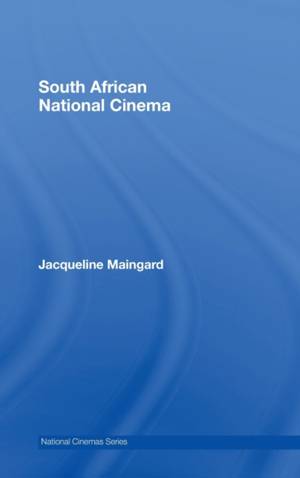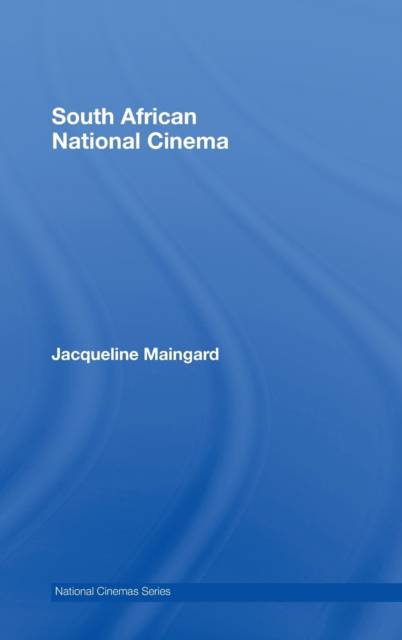
- Retrait gratuit dans votre magasin Club
- 7.000.000 titres dans notre catalogue
- Payer en toute sécurité
- Toujours un magasin près de chez vous
- Retrait gratuit dans votre magasin Club
- 7.000.000 titres dans notre catalogue
- Payer en toute sécurité
- Toujours un magasin près de chez vous
Description
South African National Cinema examines how cinema in South Africa represents national identities, particularly with regard to race. This significant and unique contribution establishes interrelationships between South African cinema and key points in South Africa's history, showing how cinema figures in the making, entrenching and undoing of apartheid. This study spans the twentieth century and beyond through detailed analyses of selected films, beginning with De Voortrekkers (1916) through to Mapantsula (1988) and films produced post apartheid, including Drum (2004), Tsotsi (2005) and Zulu Love Letter (2004).
Jacqueline Maingard discusses how cinema reproduced and constructed a white national identity, taking readers through cinema's role in building white Afrikaner nationalism in the 1930s and 1940s. She then moves to examine film culture and modernity in the development of black audiences from the 1920s to the 1950s, especially in a group of films that includes Jim Comes to Joburg (1949) and Come Back, Africa (1959). Jacqueline Maingard also considers the effects of the apartheid state's film subsidy system in the 1960s and 1970s and focuses on cinema against apartheid in the 1980s. She reflects upon shifting national cinema policies following the first democratic election in 1994 and how it became possible for the first time to imagine an inclusive national film culture.
Illustrated throughout with excellent visual examples, this cinema history will be of value to film scholars and historians, as well as to practitioners in South Africa today.
Spécifications
Parties prenantes
- Auteur(s) :
- Editeur:
Contenu
- Nombre de pages :
- 234
- Langue:
- Anglais
- Collection :
Caractéristiques
- EAN:
- 9780415216791
- Date de parution :
- 14-12-07
- Format:
- Livre relié
- Format numérique:
- Ongenaaid / garenloos gebonden
- Dimensions :
- 165 mm x 235 mm
- Poids :
- 485 g







